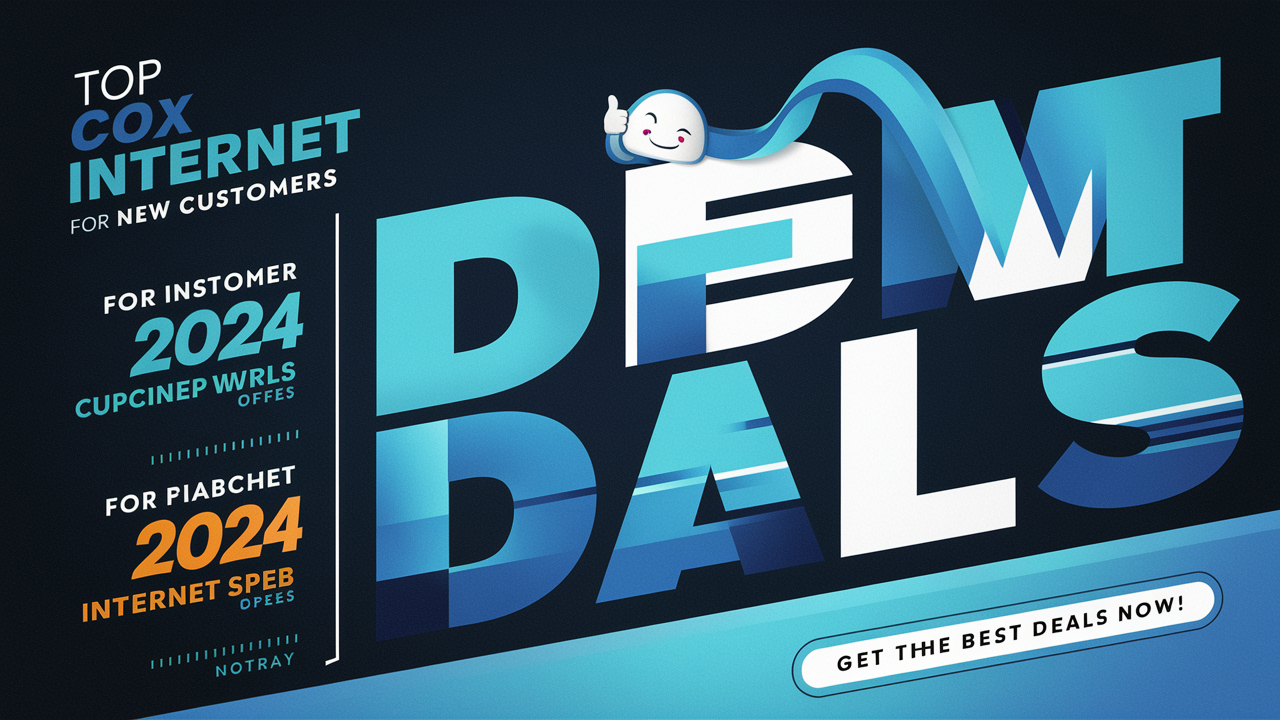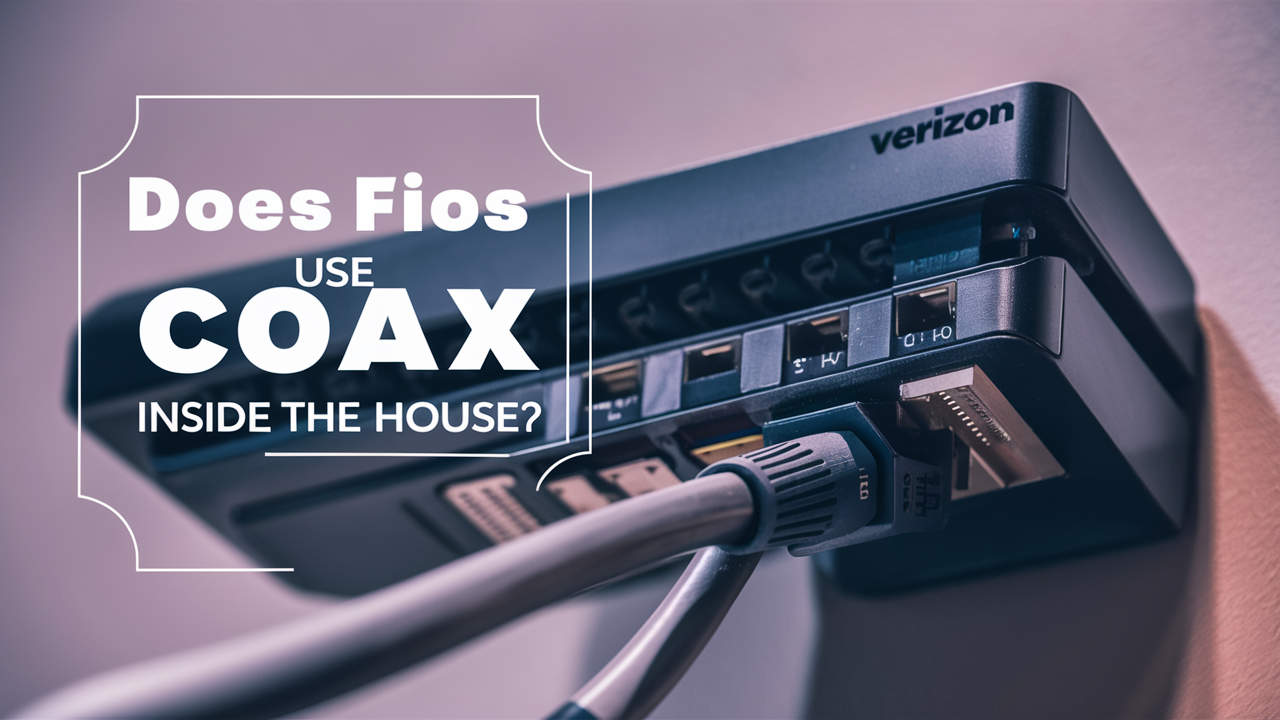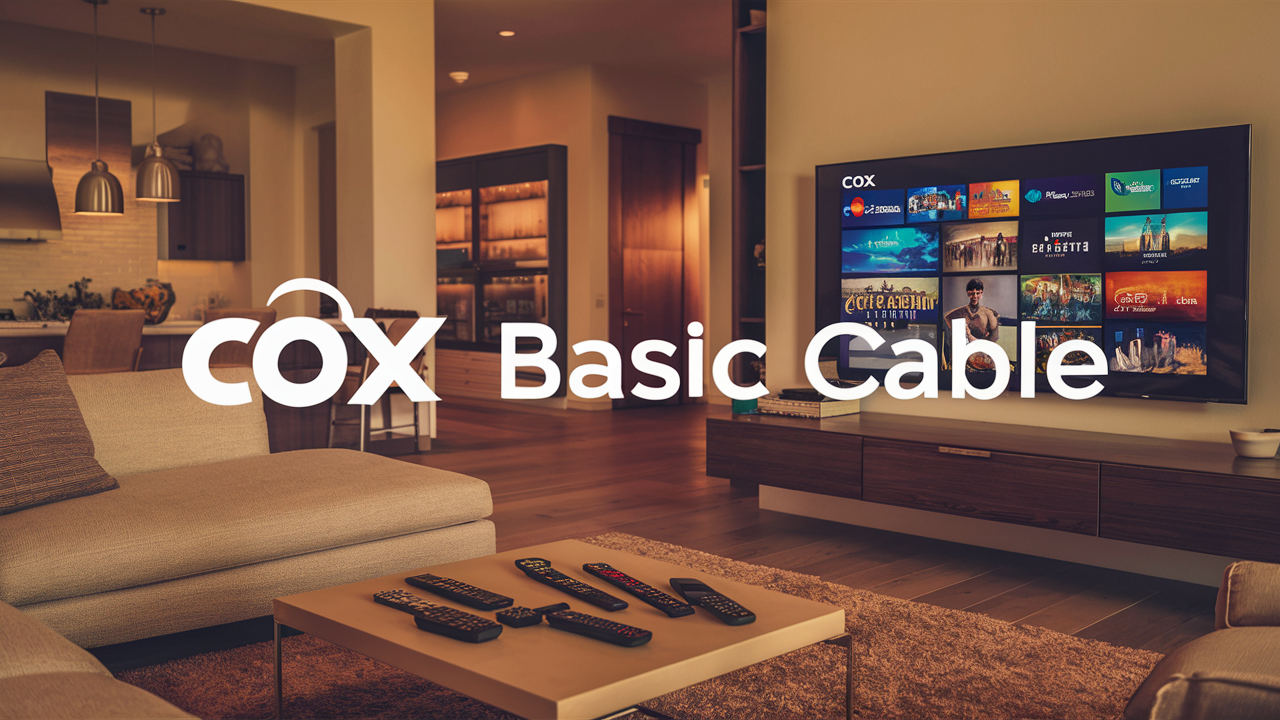Who is the Competitor of Cox?

In the ever-evolving landscape of American telecommunications, choosing the right provider for your internet, television, and phone services is a critical decision for both households and businesses. For millions of customers across the United States, Cox Communications has been a familiar and reliable name, offering a suite of connected home services. However, no company operates in a vacuum. The market is fiercely competitive, with numerous giants and niche players vying for your subscription. This naturally leads to a pivotal question: Who is the competitor of Cox?
Understanding the competitive field is more than just a curiosity—it’s the key to unlocking better deals, superior service quality, and a package that truly fits your needs. Whether you're frustrated with your current plan, moving to a new home, or simply exploring your options, knowing how Cox stacks up against its rivals is essential.
This definitive guide provides an in-depth analysis of Cox Communications' competition. We will dissect the major players—from national behemoths like Comcast Xfinity and Spectrum to fiber-optic specialists like Verizon Fios and AT&T Fiber. We'll compare services, pricing, reliability, and customer satisfaction to give you a clear picture of the telecom battlefield. By the end of this article, you will be equipped with all the knowledge needed to determine if Cox is your best choice or if one of its formidable competitors offers a better value.
Overview of Cox Communications
Before we dive into the competitors, it's crucial to understand the company itself. Cox Communications is the third-largest cable provider in the United States and a major subsidiary of Cox Enterprises, a privately-owned conglomerate.
-
History & Background: Founded in 1962 by Governor James M. Cox, the company started with cable television in Pennsylvania. Over the decades, it expanded aggressively through acquisitions and organic growth, pioneering digital cable, high-speed internet, and digital telephone services. Unlike many of its publicly-traded rivals, Cox remains a private company, which it argues allows it to focus on long-term customer satisfaction over short-term quarterly earnings.
-
Services Offered: Cox provides a wide array of residential and business services, including:
-
High-Speed Internet: Utilizing a hybrid fiber-coaxial (HFC) network, Cox offers internet plans with speeds ranging from 100 Mbps to 2 Gbps (Gigablast) in select areas. A key point of contention is its data cap of 1.25 TB per month on most plans, with overage fees applied.
-
Cox TV: Offers a variety of cable TV packages with hundreds of channels, including premium networks and sports packages. It also provides Contour TV, its cloud-based streaming box solution.
-
Cox Homelife: A comprehensive smart home security and automation system that includes professional monitoring, smart thermostats, cameras, and door sensors.
-
Cox Mobile: A recent addition, this mobile virtual network operator (MVNO) service runs on Verizon's network, allowing Cox to offer bundled wireless plans.
-
Cox Business: A full-service provider of internet, video, voice, and cloud-based managed services for small to enterprise-level businesses.
-
-
Market Presence & Coverage: Cox's footprint is significant but not nationwide. Its service is available in portions of 18 states, with a strong presence in key markets like Phoenix, Arizona; Omaha, Nebraska; Las Vegas, Nevada; and parts of California, Virginia, and Florida. This regional concentration defines its competitive battles, which are often hyper-local.
Major Competitors of Cox Communications
The competitive threats to Cox come from various angles: other large cable companies, telecom giants with expansive fiber networks, and specialized regional providers. Here’s a breakdown of the most significant competitors of Cox Communications.
Comcast Xfinity
Often considered Cox's most direct and formidable rival, Comcast Xfinity is the nation's largest cable provider. The two companies share a very similar business model and technology.
-
Coverage, Services, and Pricing Comparison: Xfinity’s coverage is vastly larger than Cox's, serving 40+ states. Both use HFC networks, offering comparable internet speed tiers (from 75 Mbps to 3 Gbps with xFi Advanced Gateway). Xfinity also imposes a 1.2 TB data cap in most of its markets, similar to Cox's approach. TV packages and bundling options are nearly identical in structure.
-
Strengths & Weaknesses Compared to Cox:
-
Xfinity Strengths: Larger national footprint, wider availability of ultra-fast Gigabit+ plans, a more mature streaming app (Xfinity Stream), and the X1 entertainment platform is often considered best-in-class for cable TV interfaces.
-
Xfinity Weaknesses: Notoriously poor customer service reputation (though improving), complex pricing structures, and data caps are a consistent pain point for heavy users. In areas where they directly compete, Cox often markets itself as the more customer-friendly alternative due to its private ownership.
-
Spectrum (Charter Communications)
Spectrum, a brand of Charter Communications, is another cable giant and a primary competitor of Cox in several markets. Spectrum’s strategy differentiates it in key ways.
-
Market Reach & Service Overlap: Spectrum’s coverage is immense, serving over 100 million people in 41 states. It overlaps with Cox in many areas, including parts of California, Louisiana, and Ohio.
-
Spectrum vs Cox Pricing & Reliability: Spectrum’s biggest selling point is ****no data caps on any of its internet plans. This is a significant competitive advantage over both Cox and Xfinity for gamers, remote workers, and large families. Its internet plans are often simpler, starting at 300 Mbps standard in most areas. However, Spectrum's upload speeds are typically slower than fiber options, and its pricing can increase sharply after the promotional period. Reliability is generally on par with other cable providers.
AT&T
AT&T represents a different type of competition, leveraging its massive telecom infrastructure to offer both DSL and, crucially, fiber-optic internet.
-
AT&T Fiber vs Cox Cable Internet: This is the core of the competition. In areas where AT&T Fiber is available, it is a superior product to Cox's cable internet. Fiber offers symmetrical upload and download speeds (e.g., 1 Gbps up and down), lower latency for gaming and video calls, and is generally more reliable. Cox's Gigablast, while fast for downloads, still has much slower upload speeds (typically 35 Mbps on a 1 Gbps plan).
-
Bundling Options & Differences: AT&T aggressively bundles its internet with its wireless (AT&T Mobility), TV (AT&T TV No,w defunct, but DIRECTV STREAM is separate), and home phone services. For customers deeply embedded in the AT&T ecosystem, this can be a compelling reason to choose them over Cox.
Verizon Fios
Verizon Fios is a 100% fiber-optic network and is widely regarded as the gold standard for residential internet in the markets it serves. It is a fierce but geographically limited competitor.
-
Fiber-Based Competition in Certain Markets: Fios is only available in parts of 9 East Coast states (e.g., New York, New Jersey, Virginia, Massachusetts). Where it exists, it is perhaps the most potent alternative to Cox Internet.
-
Internet Speed & Reliability Comparisons: Like AT&T Fiber, Fios provides symmetrical speeds, no data caps, and exceptional reliability. In head-to-head comparisons in overlapping areas, Fios almost always wins on pure network performance and customer satisfaction scores for internet service. However, Verizon has been less aggressive than AT&T in expanding its Fios footprint in recent years.
Frontier Communications
After emerging from bankruptcy, the new Frontier Communications is focused almost exclusively on expanding its fiber network, making it a growing competitor in both rural and suburban areas.
-
Rural Availability vs Cox Coverage: Frontier often serves areas that are slightly more rural or suburban than Cox's core urban/suburban footprint. However, as it overbuilds areas with fiber, it directly challenges Cox.
-
Service Plans & Pricing: Frontier Fiber plans are competitive, offering symmetrical speeds, simple pricing, and no contracts or data caps. While its reputation suffered in its DSL days, the new fiber-focused Frontier is earning better reviews for service and performance.
CenturyLink (Lumen Technologies)
CenturyLink, now operating under its parent company name Lumen Technologies, is a legacy telecom provider with a mixed network.
-
DSL & Fiber Competition: In many areas, CenturyLink can only offer slow DSL service, which is not a real threat to Cox's high-speed cable. However, in select neighborhoods, it has deployed fiber to the premises (FTTP), offering symmetrical gigabit internet with no data caps. In these specific pockets, it becomes a compelling, price-competitive alternative.
-
Price & Speed Comparison with Cox: CenturyLink’s fiber plans often feature price-for-life guarantees, a powerful tool against Cox's promotional pricing that expires after 1-2 years. Where available, its fiber speeds match or exceed Cox's offerings.
Mediacom
Mediacom is a cable provider that operates in a similar manner to Cox but primarily serves smaller metropolitan and rural areas across 22 states, particularly in the Midwest and Southeast.
-
Similar Cable Internet Model: Like Cox, Mediacom uses a hybrid fiber-coax network and imposes data caps on its internet plans (ranging from 200 GB to 6 TB, depending on the plan).
-
Regional Competition: Mediacom and Cox do not compete in many markets directly, but their operational models are nearly identical. For customers in Mediacom-served areas, the experience and trade-offs (e.g., fast downloads but data caps) are very similar to being a Cox customer.
Smaller ISPs & Local Providers
Beyond the giants, a host of smaller players create competitive pressure.
-
Google Fiber: The pioneer in gigabit internet for the masses, Google Fiber shook up the industry but ultimately limited its rollout to a select number of cities (e.g., Austin, Atlanta, Salt Lake City). Where it exists, it forces Cox and others to improve speeds and lower prices.
-
Regional ISPs: Companies like Suddenlink (owned by Optimum), WOW! (WideOpenWest), Atlantic Broadband (owned by Astound) operates in specific regions. They often compete aggressively on price and may offer more flexible plans without long-term contracts or data caps to differentiate themselves from the larger cable companies.
-
How Local Competition Affects Cox: The presence of any viable alternative, even a smaller local provider, keeps Cox's pricing in check and can lead to better customer service and promotional offers in that specific locality.
Cox vs Competitors – Service Comparison
To truly understand the competitive landscape, let's break down the key service categories.
-
Internet Speeds & Reliability:
-
Cox: Offers very good download speeds via its cable network, but upload speeds are a weakness. Reliability is generally solid on its well-maintained network.
-
Fiber Competitors (Verizon Fios, AT&T Fiber): Superior symmetrical speeds and lower latency, often leading to higher reliability.
-
Cable Competitors (Xfinity, Spectrum): Nearly identical performance profile to Cox. Spectrum has an edge with no data caps.
-
-
Pricing & Promotional Offers:
-
Cox: Uses standard industry promotional pricing for 12-24 months, after which rates can increase significantly. Equipment fees and taxes add to the cost.
-
Competitors: All major players use similar promotional pricing models. CenturyLink's price-for-life is a key differentiator. Smaller ISPs often have more transparent, permanent pricing.
-
-
TV Packages & Channel Lineups:
-
The cable TV offerings from Cox, Xfinity, and Spectrum are largely comparable. Differences lie in proprietary equipment (Contour vs X1) and sometimes in regional sports network availability.
-
-
Bundles (Internet + TV + Phone):
-
Bundling is a key strategy for all providers. Cox, Xfinity, and Spectrum offer deep discounts for triple-play bundles. The value of these bundles has decreased with the rise of streaming, but they can still save money for customers who want traditional pay-TV.
-
-
Customer Service & Satisfaction Ratings:
-
According to annual reports from J.D. Power and the American Customer Satisfaction Index (ACSI), the entire cable industry traditionally scores low. Fiber providers like Verizon Fios and AT&T Fiber typically score higher. Among cable companies, Cox often ranks in the middle to upper tier, frequently scoring better than Comcast Xfinity but sometimes behind Spectrum.
-
Cox Business Competitors
The business services arena is just as competitive. Cox Business faces off against:
-
AT&T Business Internet: A powerful foe with a massive national fiber network dedicated to businesses of all sizes.
-
Comcast Business: Similar to Cox Business but with a larger geographic footprint and often more robust enterprise solutions.
-
Spectrum Business: Offers scalable cable and fiber solutions with the advantage of no data caps on many plans.
-
Frontier Business Solutions: Leveraging its growing fiber network for business clients with a focus on symmetrical speeds.
Which businesses should choose Cox over competitors? A local business within Cox's footprint might benefit from its personalized service and reliable cable internet. However, a business requiring symmetrical fiber connections, higher SLA guarantees, or a national account presence might be better served by AT&T, Comcast Business, or a dedicated fiber provider.
Advantages of Cox Over Competitors
Despite the intense competition, Cox holds several key advantages:
-
Strong Cable Internet Footprint: In its regions, its network is often well-built and provides consistently fast download speeds.
-
Bundling Flexibility: The ability to combine internet, TV, home security, and now mobile service into one bill is a significant convenience for many customers.
-
Competitive Pricing in Certain Areas: In markets with less competition (e.g., where the only alternative is DSL), Cox's pricing can be very aggressive.
-
Added Services like Homelife: Its integrated smart home security system is a sticky product that competitors like Spectrum and Google Fiber don't directly replicate as seamlessly.
Disadvantages of Cox Compared to Competitors
Cox also has some notable weaknesses that competitors exploit:
-
Data Caps vs Unlimited Options: The 1.25 TB data cap is its biggest disadvantage compared to Spectrum, Google Fiber, and all fiber providers, who typically offer unlimited data.
-
Limited Fiber Availability: While it offers Gigablast, its network is not true fiber-to-the-home for most customers, meaning it can't match the upload performance of AT&T or Verizon.
-
Customer Service Reputation: While not the worst in the industry, customer service remains a pain point and is a common reason customers switch to a competitor.
Customer Reviews – Cox vs Competitors
A summary of sentiment from various review platforms (BBB, Trustpilot, Reddit) reveals common themes:
-
Cox: Praised for reliable speeds in its service areas but criticized for data caps, post-promotional price hikes, and customer service experiences during outages.
-
Xfinity: Similar complaints about data caps and pricing, but often praised for the X1 platform and widespread gigabit availability.
-
Spectrum: Consistently praised for no data caps but criticized for price increases and occasional service reliability issues.
-
Verizon Fios: Universally praised for incredible speed, reliability, and no data caps. Complaints are rarely about the service itself but more about availability.
Final Verdict – Who Competes Most Closely with Cox?
So, who is the biggest competitor of Cox Communications? The answer is multifaceted.
-
On a National scale, Comcast Xfinity is its most direct competitor due to its identical cable business model and massive size.
-
In Specific Markets: The competition is hyper-local. In parts of Virginia, Verizon Fios is its arch-nemesis. In Arizona, it might be CenturyLink Fiber or Google Fiber. In many of its regions, Spectrum is its key cable rival, using the potent "no data caps" message.
Recommendations:
-
Choose Cox if you are in its coverage area, need fast download speeds, plan to bundle services, and your household usage consistently stays under the 1.25 TB data cap.
-
Choose a Fiber Provider (AT&T, Verizon, Frontier) if they are available at your address. The symmetrical speeds, low latency, and lack of data caps almost always provide a superior internet experience.
-
Choose Spectrum if it's available, and the lack of data caps is your primary deciding factor.
-
Explore a Local ISP if one serves your area, as they often provide better customer service and more flexible terms.
Faq
Q1: Who is the biggest competitor of Cox Communications?
On a national level, Comcast Xfinity is Cox's largest and most direct competitor due to its similar cable-based service model and vast size. However, in specific local markets, competitors like Verizon Fios, AT&T Fiber, or Spectrum can be its most significant threat.
Q2: Is Cox better than Spectrum?
It depends on your needs. Cox often offers slightly faster base-tier internet speeds in some plans and has a strong bundling ecosystem. However, Spectrum's major advantage is that it offers unlimited data with no caps on all its plans, while Cox enforces a 1.25 TB monthly cap. For heavy internet users, Spectrum is often the better choice for this reason alone.
Q3: How does Cox compare to AT&T Fiber?
This is a comparison of different technologies. Cox (cable) offers fast download speeds but much slower upload speeds and has a data cap. AT&T Fiber provides symmetrical upload and download speeds (crucial for video conferencing, uploading large files, and gaming), typically has no data caps, and is often more reliable. If AT&T Fiber is available at your address, it is generally a superior internet product to Cox's cable service.
Q4: Does Cox compete with Comcast Xfinity?
Yes, directly. While their service territories don't always overlap perfectly, they are direct competitors in the cable industry. They offer nearly identical services (internet, TV, phone, home security), use similar technology, and both enforce data caps on internet usage. They compete aggressively on price and package offerings in the markets they both serve.
Q5: Who provides cheaper internet than Cox?
This is highly location-dependent. Often, DSL providers like CenturyLink or Frontier (non-fiber plans) offer cheaper base prices, but at significantly slower speeds. T-Mobile Home Internet or Verizon 5G Home Internet can also be cheaper alternatives if you are in a 5G coverage area and can accept the variability of wireless service. Promotional prices from all providers are usually competitive, but the key is to compare the regular price after the promo period ends.
Q6: Is Cox Business Internet competitive with other providers?
Yes, Cox Business is a strong player in its regional markets. It offers dedicated internet, phone, and managed services for businesses. However, for businesses requiring symmetrical fiber speeds or nationwide service-level agreements (SLAs), large national providers like AT&T Business or Comcast Business may have an advantage due to their more extensive network infrastructure.
Q7: Which provider offers better customer service than Cox?
According to historical customer satisfaction surveys from J.D. Power and ACSI, fiber-optic providers like Verizon Fios and AT&T Fiber consistently rank higher in customer service satisfaction for internet service than cable providers like Cox. Among cable companies, Cox's ratings are typically average to slightly above average.
Q8: Does Cox have more coverage than Verizon Fios or Frontier?
Yes, significantly. Cox has a much broader cable coverage area across 18 states. Verizon Fios is only available in specific parts of the East Coast, and Frontier's fiber network, while expanding, is still limited to select areas within its larger DSL footprint. Cox's coverage is more extensive, but the quality of the service in areas where they directly compete is often won by the fiber provider.





